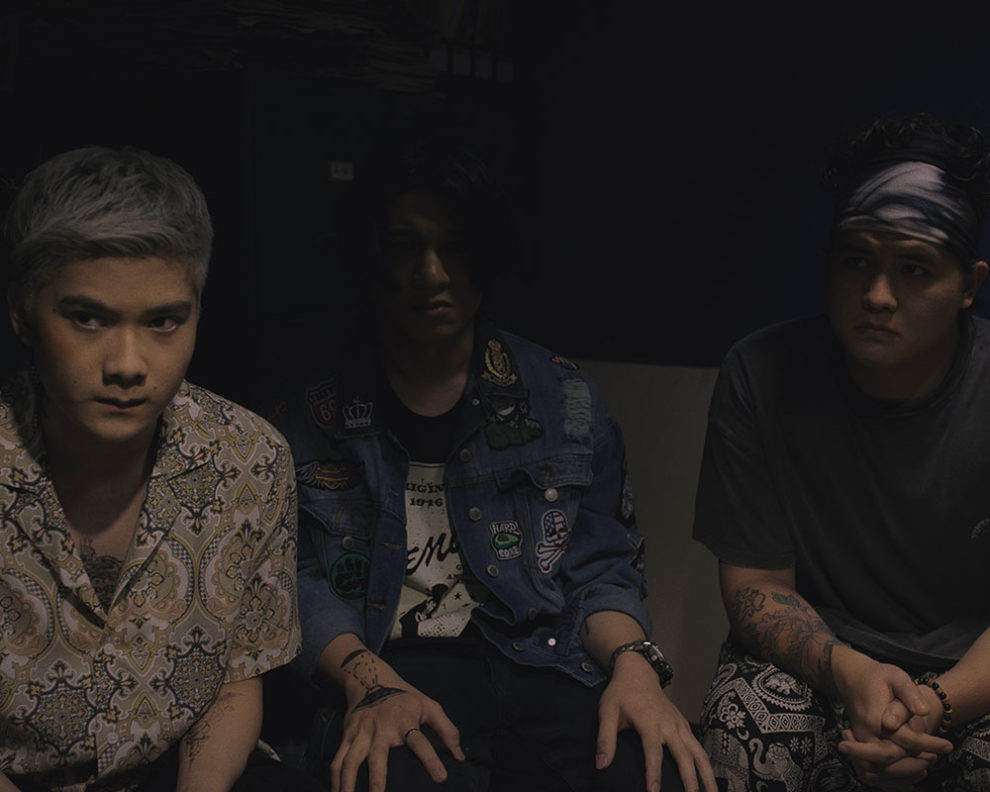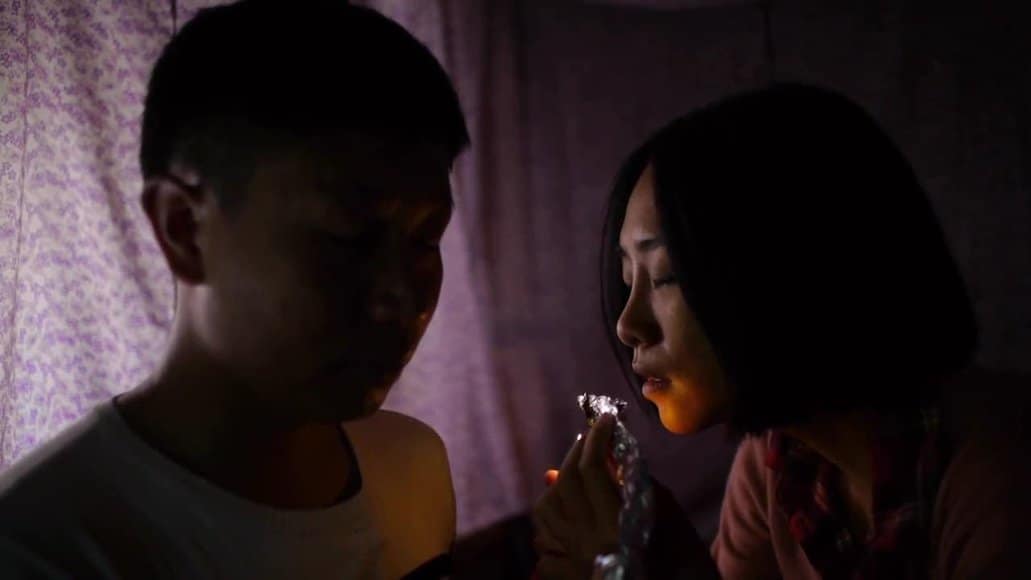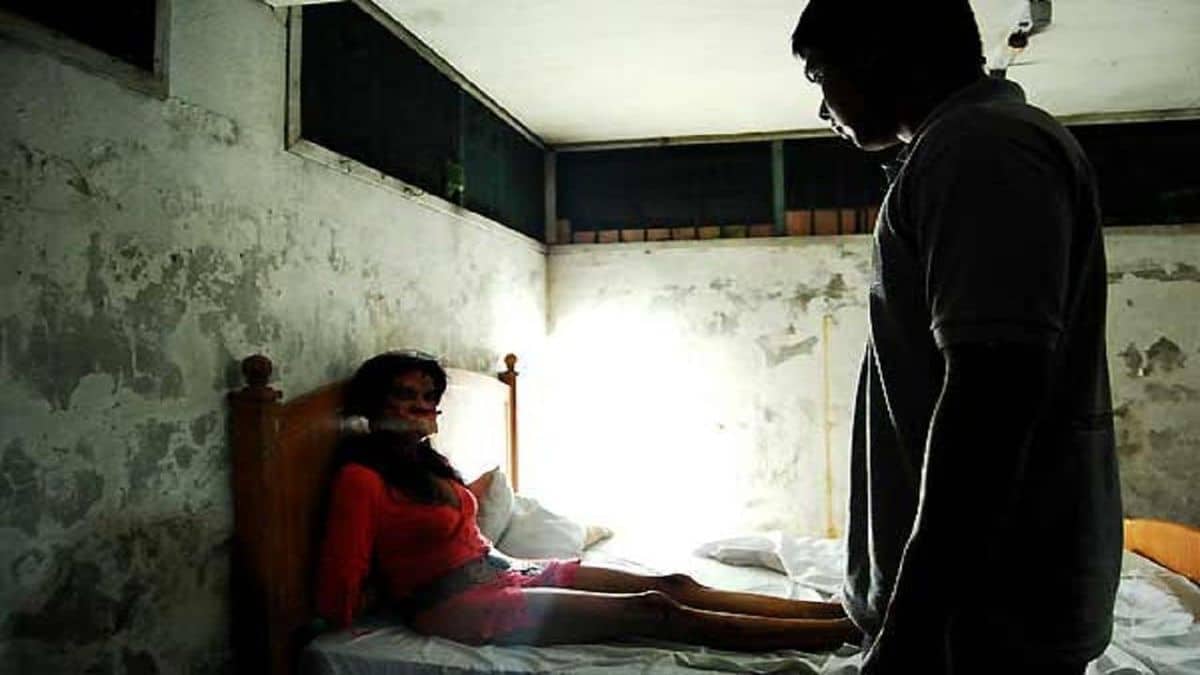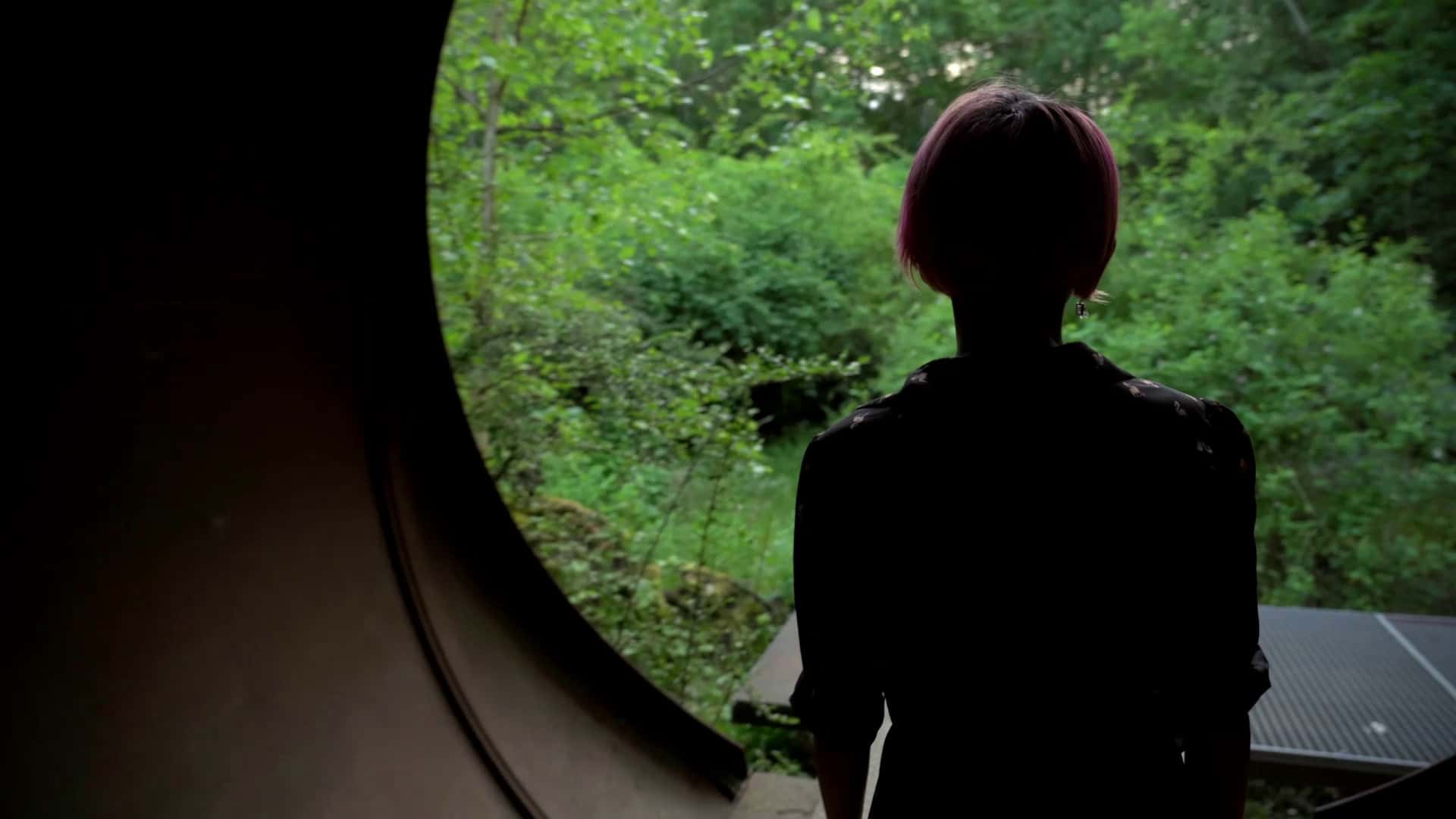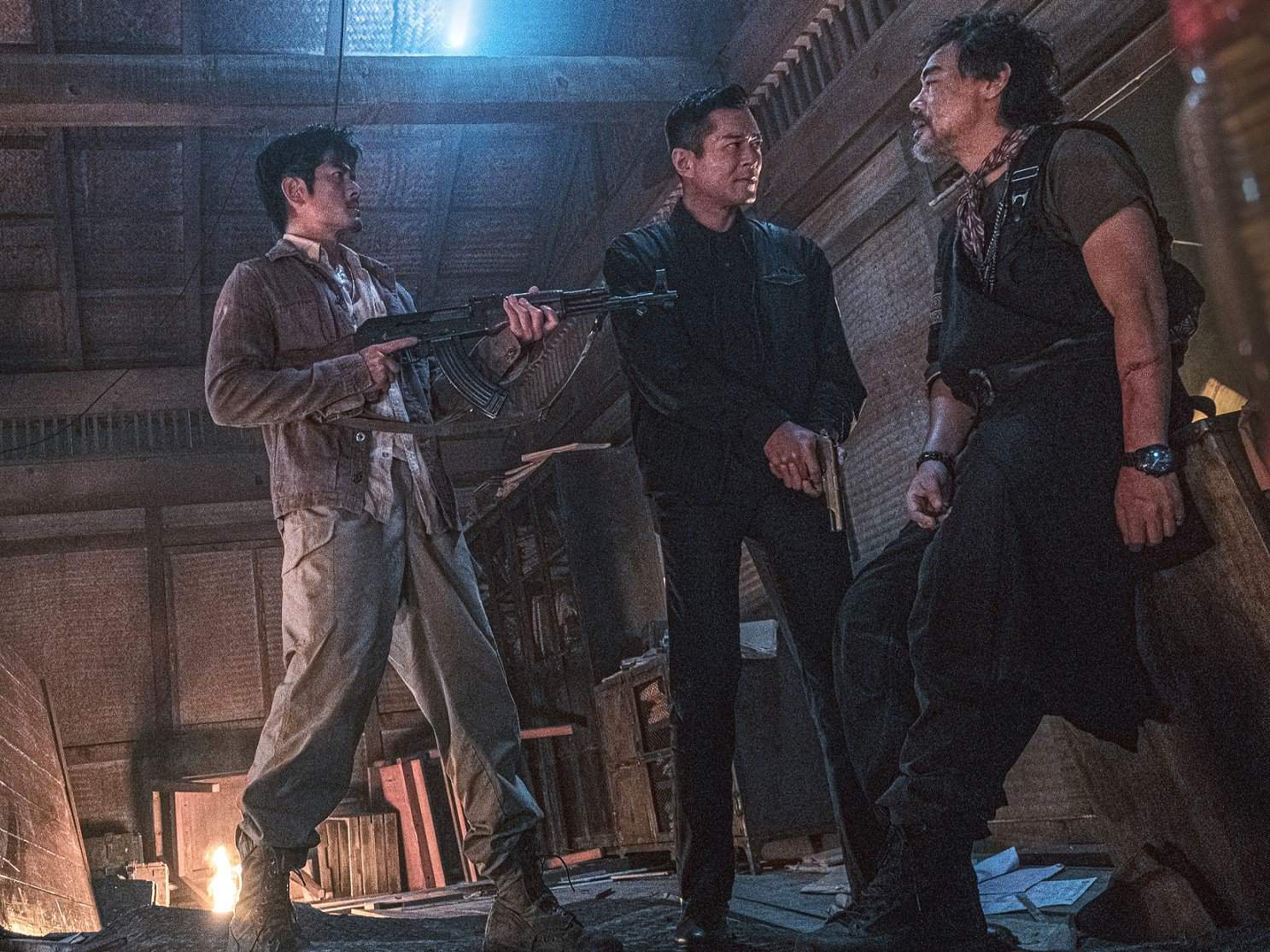The inequalities that exist throughout the Filipino system have been presented a number of times in indie cinema, particularly regarding the connection between the police, the politicians and the military. Ma-an Asuncion-Dagnalan, however, showcases another perspective, since the youths that find themselves strong-armed by the law here, are actually privileged themselves, to a point at least.
Blue Room is screening at Busan International Film Festival

Rebel Rebel, an indie rock band consists of a group of such youths, who have just gotten their biggest break during a prestigious local music festival. Their show is great, and the reappearance of an old member, Anton, adds even more to their performance. The group decide to go for drinks after the show, where tension mounts for a bit, as one has his phone stolen, and another one even ends up in a fist fight, which eventually leads them to leave the bar. Not before having some space cookies, however, and even sharing their partying in the car in their social media. However, they soon find themselves stopped by the police, who find drugs in the car and arrest the whole of them. Instead of following the proper procedure, though, the youths are hauled into the Blue Room, a kind of VIP section of the precinct, where the police officers try to blackmail them for a bribe in order to let them go. As time passes, the blackmail becomes even more intense, and the members of the group have to decide how to proceed, of taking the deal or staying firm with their ideals, as they express them through their music.
Ma-an Asuncion-Dagnalan directs a film that focuses on the inequalities of Filipino society, as exhibited by the way the police treat people. What comes as a surprise though, is that not only the poor get exploited, but the same applies to the rich (or richer if you prefer) who also find themselves exploited, only on a whole other level than the characters in “On The Job” for example. At the same time, the fact that one of the arrested has a relative who was a higher up in the military and this affects the decisions of the policemen significantly, adds another level to both the corruption and the inequality comments. The ending of the arc, with Anton expressing essentially what should be on the audience's mind, highlights the commentary here quite eloquently.
At the same time, and apart from context, the middle and largest part unfolds quite entertainingly as a kind of psychological thriller, as the pressure of the policemen has a different impact on each individual, with them thinking if they should save themselves or work as a group. Lastly, some requests from the officer handling the case inside the Blue Room, move towards a whole more extreme direction, which is not fully explored though.
The whole atmosphere also benefits the most from Neil Daza's cinematography, who creates a truly claustrophobic setting that adds much to the aesthetics of the movie, while his prowess also extends to the scenes in the bar and the car, all of which are quite well shot.
At the same time, however, there is an issue with the narrative, as the first part, with the concert and the events in the bar, has very little to do with what happens after the members of the group are arrested, with the same applying to the ending scene. These moments actually seem like some kind of promotion of the group, or at least the people who wrote and performed the songs, and have little to do with the main core of the narrative. The same applies to the “deus ex-machina” ending of the main arc, which seems somewhat abrupt considering the pace of the rest of the movie, with the sum of the issues seeming like the shared fault of editing,writing and direction.
On the other hand, these issues are definitely not enough to harm the sense “Blue Room” leaves completely, as the bravery in the presentation of the main comments, the visual artfulness and the music definitely tilt the scale towards the positive.


